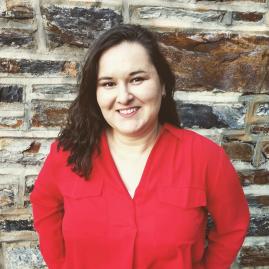
This content is provided by Burroughs Wellcome Fund and reflects their views, opinions, and insights.
Synthetic biology has seen rapid growth over the past decade. Burroughs Wellcome Fund (BWF) helps to accelerate this growth by supporting projects in the field that align with its mission. I had a chance to catch up with Dr. Kelly Chavez Rose, who oversees the Interfaces in Science and Regulatory Science programs, which invests a combined $10 million a year in biomedical research.
BWF is participating in this year’s Synthetic Biology: Engineering, Evolution and Design (SEED) Conference, which focuses on advancing synthetic biology research and industrial applications. You can get in touch with Kelly to learn more about BWF.
What are some of the most exciting developments you have seen in the field of synthetic biology over the past year or two?
Synthetic biology has grown exponentially since I left the bench six years ago. As a program officer at the Burroughs Wellcome Fund, I’m excited to support projects that align with the mission of BWF, which is to serve and strengthen society by nurturing a diverse group of leaders in biomedical sciences to improve human health through education and powering discovery in frontiers of greatest need.
With BWF’s burgeoning interest in climate change and human health, I’m most excited to see how synthetic ecology grows as a field and its contribution to helping combat climate change.
How do you see synthetic biology playing a role in BWF’s mission to nurture leaders in biomedical sciences to improve human health?
BWF supports individuals doing important yet underfunded work in their fields and is committed to the development of young scientists. Synthetic biology is a young field and has many early career scientists who want not only further the field but make discoveries with real world impact.
In my portfolio, our Career Awards at the Scientific Interface (CASI) is a great funding opportunity for those scientists to apply their expertise in physics, engineering, and other fields towards synthetic biology to make significant advances in biomedical science. The CASI award mechanism is a five-year postdoctoral fellowship to faculty that serves as a bridging award to provide not only funds for research, but also funds for the awardee’s professional development.
Our 2021 awardees will be announced soon, and there are a couple of exciting synthetic biology projects to look out for.
Can you tell us about some of the programs BWF is supporting that are related to synthetic biology?
We have funded some exciting projects in synthetic biology at Burroughs Wellcome Fund’s (BWF) over the years, including work by Drs. Lacra Bintu, Kristen Frieda, and Jennifer Brophy, just to name a few CASI awardees. They are working on a variety of projects, from single cell epigenetic regulation (Bintu) to bioengineering organs using synthetic genetic regulation (Brophy) to recording cell histories in situ (Frieda).
The complete listing of awardees and project titles of BWF’s Career Awards at the Scientific Interface (CASI) can be found here.
BWF also fosters interactions between current awardees and alumni through our New Awardee Symposium, sponsored dinners at in-person conferences, and through our ad hoc funding mechanisms which has funded several workshops, conferences, and symposia related to synthetic biology.
BWF is a proud sponsor of this year’s SEED conference, as one example.
In addition to CASI, the Innovations in Regulatory Science Awards (IRSA) is another potential award mechanism of interest to the synthetic biology community. Innovations in Regulatory Science Awards (IRSA) is a five-year grant awarded to academic investigators who are developing new methodologies or innovative approaches in regulatory science that will ultimately inform decisions made by regulatory bodies such as the Food and Drug Administration (FDA). We have seen synthetic biology approaches used in our Innovations in Regulatory Sciences Award program. For example, Dr. Kevin Esvelt, a 2016 IRSA awardee, is working on a model system to evaluate the dynamics and safety of gene drive applications. Thinking about how these techniques will be evaluated at the regulatory level and coming up with innovative ways to assess them for safety and efficacy in order to improve human health will certainly be needed as this field expands.
I’ve only highlighted a few of BWF’s funding mechanisms, but there are others that may be of interest to the synthetic biology community, including programs in reproductive science, career guidance for trainees, and diversity in science initiatives.
How can SEED attendees and others in the synthetic biology community get involved with these programs?
Details on all of our programs can be found at www.bwfund.org. For more news and information follow us on Twitter @bwfund, and for specific program details, reach out to us directly. Contact information can be found on our website.

Dr. Kelly Chavez Rose
Dr. Kelly Chavez Rose is the Program Officer of the Interfaces in Science and Regulatory Science group at Burroughs Wellcome Fund.
Disclosure: This post is sponsored by Burroughs Wellcome Fund and reflects their views, opinions, and insights.


